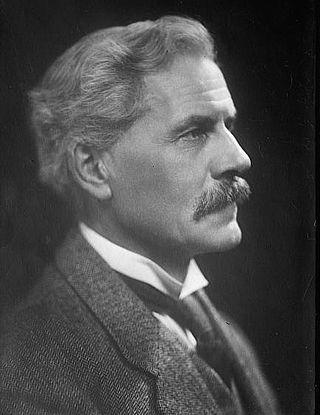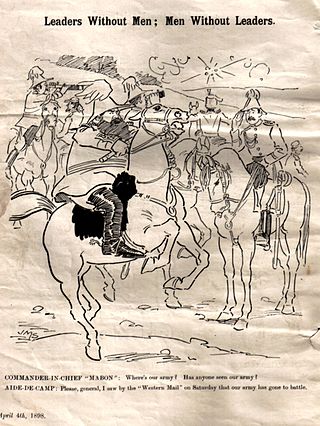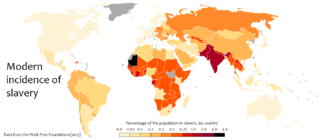Labour laws, labour code or employment laws are those that mediate the relationship between workers, employing entities, trade unions, and the government. Collective labour law relates to the tripartite relationship between employee, employer, and union.

Debt bondage, also known as debt slavery, bonded labour, or peonage, is the pledge of a person's services as security for the repayment for a debt or other obligation. Where the terms of the repayment are not clearly or reasonably stated, or where the debt is excessively large the person who holds the debt has thus some control over the laborer, whose freedom depends on the undefined or excessive debt repayment. The services required to repay the debt may be undefined, and the services' duration may be undefined, thus allowing the person supposedly owed the debt to demand services indefinitely. Debt bondage can be passed on from generation to generation.

Indentured servitude is a form of labor in which a person is contracted to work without salary for a specific number of years. The contract, called an "indenture", may be entered voluntarily for purported eventual compensation or debt repayment, or imposed involuntarily as a judicial punishment.
A yellow-dog contract is an agreement between an employer and an employee in which the employee agrees, as a condition of employment, not to be a member of a labor union. In the United States, such contracts were used by employers to prevent the formation of unions, most often by permitting employers to take legal action against union organizers. In 1932, yellow-dog contracts were outlawed in the United States under the Norris-LaGuardia Act.

The second MacDonald ministry was formed by Ramsay MacDonald on his reappointment as prime minister of the United Kingdom by King George V on 5 June 1929. It was only the second time the Labour Party had formed a government; the first MacDonald ministry held office in 1924.

Penal labour is a term for various kinds of forced labour that prisoners are required to perform, typically manual labour. The work may be light or hard, depending on the context. Forms of sentence involving penal labour have included involuntary servitude, penal servitude, and imprisonment with hard labour. The term may refer to several related scenarios: labour as a form of punishment, the prison system used as a means to secure labour, and labour as providing occupation for convicts. These scenarios can be applied to those imprisoned for political, religious, war, or other reasons as well as to criminal convicts.
Truck Acts is the name given to legislation that outlaws truck systems, which are also known as "company store" systems, commonly leading to debt bondage. In England and Wales such laws date back to the 15th century.

The Liberal Government of New Zealand was the first responsible government in New Zealand politics organised along party lines. The government formed following the founding of the Liberal Party and took office on 24 January 1891, and governed New Zealand for over 21 years until 10 July 1912. To date, it is the longest-serving government in New Zealand's history. The government was also historically notable for enacting significant social and economic changes, such as the Old Age Pensions Act and women's suffrage. One historian described the policies of the government as "a revolution in the relationship between the government and the people".
A collective agreement, collective labour agreement (CLA) or collective bargaining agreement (CBA) is a written contract negotiated through collective bargaining for employees by one or more trade unions with the management of a company that regulates the terms and conditions of employees at work. This includes regulating the wages, benefits, and duties of the employees and the duties and responsibilities of the employer or employers and often includes rules for a dispute resolution process.

The Welsh coal strike of 1898 was an industrial dispute involving the colliers of South Wales and Monmouthshire. The strike began as an attempt by the colliers to remove the sliding scale, which determined their wage based on the price of coal. The strike quickly turned into a disastrous lockout which would last for six months and result in a failure for the colliers as the sliding scale stayed in place. The strike is seen as an important landmark in Welsh history as it saw the true adoption of trade unionism in the southern coalfield which had been slow to take hold before then. The South Wales Miners' Federation was the largest trade union to have originated from this dispute.
The History of labour law in the United Kingdom concerns the development of UK labour law, from its roots in Roman and medieval times in the British Isles up to the present. Before the Industrial Revolution and the introduction of mechanised manufacture, regulation of workplace relations was based on status, rather than contract or mediation through a system of trade unions. Serfdom was the prevailing status of the mass of people, except where artisans in towns could gain a measure of self-regulation through guilds. In 1740 save for the fly-shuttle the loom was as it had been since weaving had begun. The law of the land was, under the Act of Apprentices 1563, that wages in each district should be assessed by Justices of the Peace. From the middle of the 19th century, through Acts such as the Master and Servant Act 1867 and the Employers and Workmen Act 1875, there became growing recognition that greater protection was needed to promote the health and safety of workers, as well as preventing unfair practices in wage contracts.

The history of labour law concerns the development of labour law as a way of regulating and improving the life of people at work. In the civilisations of antiquity, the use of slave labour was widespread. Some of the maladies associated with unregulated labour were identified by Pliny as "diseases of slaves."

Human trafficking in Australia is illegal under Divisions 270 and 271 of the Criminal Code (Cth). In September 2005, Australia ratified the Protocol to Prevent, Suppress and Punish Trafficking in Persons, especially Women and Children, which supplemented the United Nations Convention against Transnational Organized Crime. Amendments to the Criminal Code were made in 2005 to implement the Protocol.

Indentured servitude in Pennsylvania (1682-1820s): The institution of indentured servitude has a significant place in the history of labor in Pennsylvania. From the founding of the colony (1681/2) to the early post-revolution period (1820s), indentured servants contributed considerably to the development of agriculture and various industries in Pennsylvania. Moreover, Pennsylvania itself has a notable place in the broader history of indentured servitude in North America. As Cheesman Herrick stated, "This system of labor was more important to Pennsylvania than it was to any other colony or state; it continued longer in Pennsylvania than elsewhere."

The Coal Industry Nationalisation Act 1946 was an Act of the Parliament of the United Kingdom which nationalised, or brought into state control, the coal industry in the United Kingdom. It established the National Coal Board as the managing authority for coal mining and coal processing activities. It also initially provided for the establishment of consumers' councils. The Coal Industry Nationalisation Act 1946 was the first of a number of Acts promulgated by the post-war Labour government to nationalise elements of the UK's industrial infrastructure; other Acts include the Electricity Act 1947; the Transport Act 1947 ; the Gas Act 1948; and the Iron and Steel Act 1949.
The United Kingdom Mines and quarries regulation in 1910 was a specialised topic in UK labour law, given the complexity of the legislation and seriousness of injuries that people suffered.
The Indian Slavery Act, 1843, also known as Act V of 1843, was an act passed in British India under East India Company rule, which outlawed many economic transactions associated with slavery.

Debt bondage in India or Bandhua Mazdoori was legally abolished in 1976 but remains prevalent due to weak enforcement by the government. Bonded labour is a system in which lenders force their borrowers to repay loans through labor. Additionally, these debts often take a large amount of time to pay off and are unreasonably high, propagating a cycle of generational inequality. This is due to the typically high interest rates on the loans given out by employers. Although debt bondage is considered to be a voluntary form of labor, people are forced into this system by social situations.

Slavery in international law is governed by a number of treaties, conventions and declarations. Foremost among these is the Universal Declaration on Human Rights (1948) that states in Article 4: “no one should be held in slavery or servitude, slavery in all of its forms should be eliminated.”
Events from the year 1775 in Scotland.









